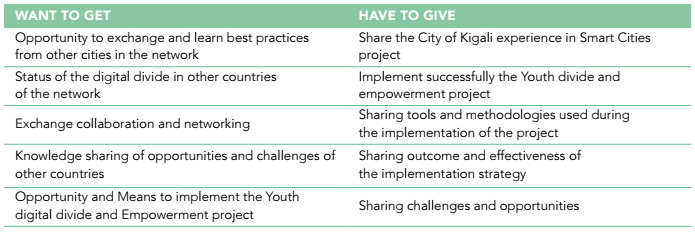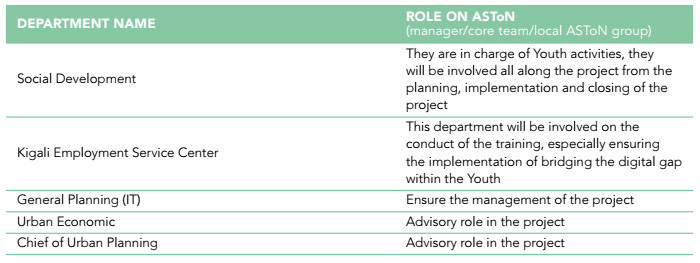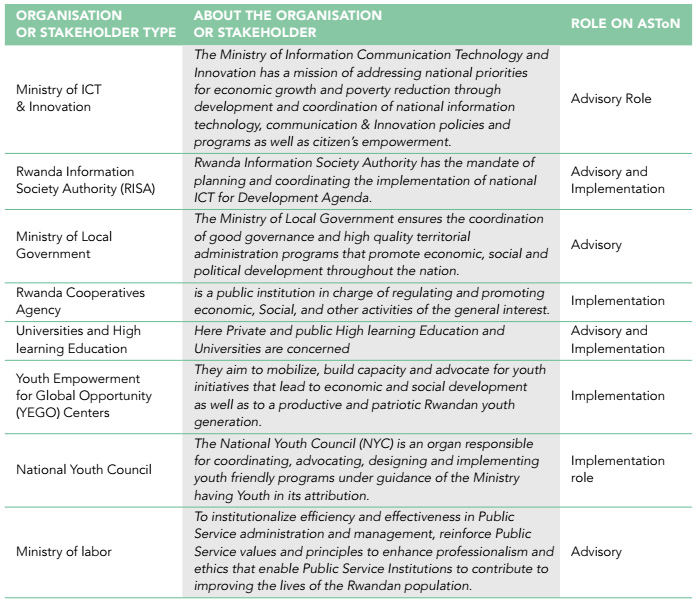Citizen participation / digital divide
Focus area for ASToN
 Kigali’s chosen theme is Citizen Participation/Digital Divide
Kigali’s chosen theme is Citizen Participation/Digital Divide
People aged 14-35 years represent 53% of the Kigali’s population. The city is therefore home to a significant number of young people who can drive innovation and societal change through digital technology. But the level of digital skills within this age group in Kigali is split. While some are digitally literate, there are groups who have an interest in ICT technologies but are at a disadvantage in terms of the skills required to meaningfully engage with them.
Bridging this digital divide within Kigali is crucial in order to spread opportunity, improve employability, and encourage a greater uptake of digital services. A key metric for success would therefore be an increase in the number of digitally literate youth, as well as greater uptake in the use of e-government and e-business services.
Findings: the starting point for addressing these problems
The following findings set out the starting point for Kigali as they work to address digital skills within the youth population. Based on research conducted over the course of Phase 1, they describe the interlinked strengths and challenges that need to be taken into account.
There is strong political will for digital transformation
The City of Kigali has a clear agenda towards conducting digital projects that fit within strategic priorities at the national level. Capitalising on the potential of Kigali and Rwanda more generally as a digital hub in Africa is helping lead to sustained economic growth and societal transformation.
The local ecosystem is strong and underutilised
The local innovation and technology scene is very strong in Kigali, and the city authority could connect with these stakeholders more readily for greater cooperation. Up to now, there has been limited interaction with local innovators and technologists.
Some digital projects are beyond local authority capacity
At the level of the local authority, there is an overall lack of knowledge and capacity for implementing parts of the Smart City Masterplan. For example, there are only two ICT staff within the entire city authority.
The CoK has identified a clear problem but needs to be cautious in its approach
Widespread digital skills among youth is a key requirement for systemic digital transformation to positively affect society. The city authority has identified this problem clearly, and it is one that they are planning to act towards. However, the city needs to make sure that solutions do not accentuate other existing inequalities, especially those that affect the most vulnerable in society.
Next steps
It is not clear where the Local Action Plan will sit among the range of competing projects within the local authority and across national plans. Nevertheless, Kigali has a clearly identified problem statement that it can explore to build a clear intervention.
Departments of the local authority involved in the project
Stakeholders involved in the ASToN Local Group
Participating in the ASToN network





